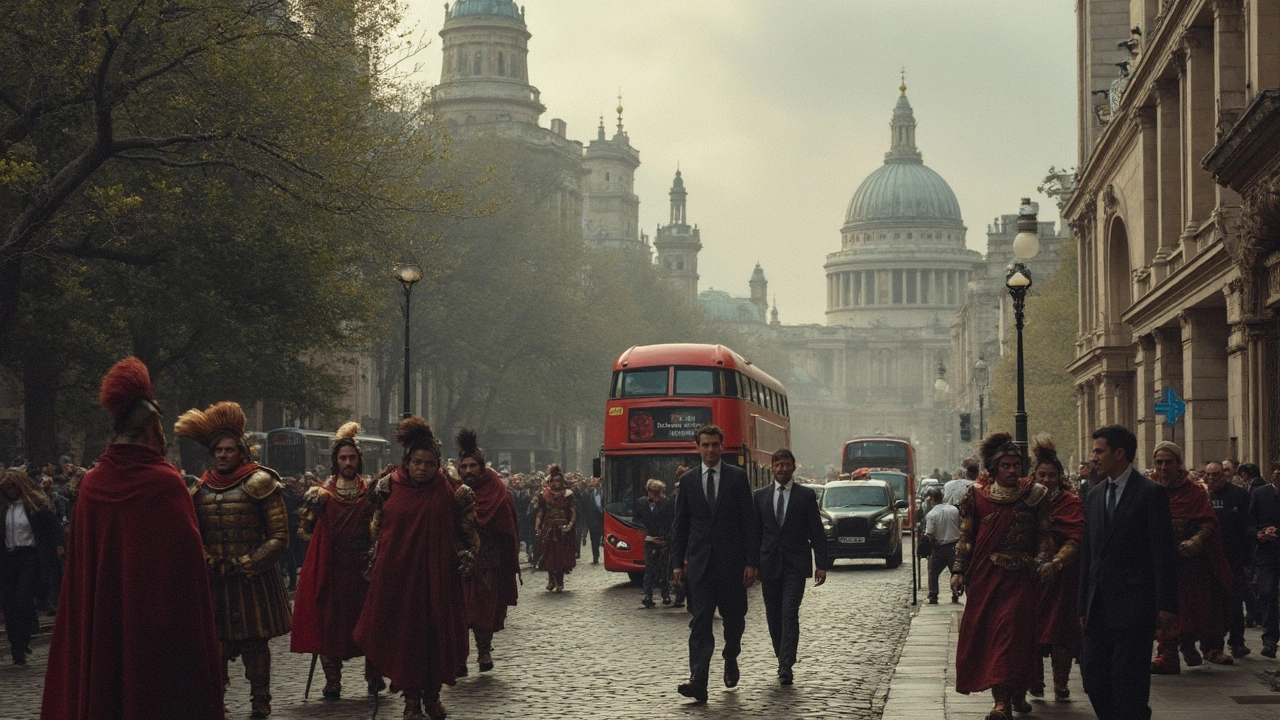City Origins – How Cities Started and Why They Matter
Ever wonder why we have sprawling metros instead of a handful of villages? The answer lies in the very first steps humans took to turn a spot on the map into a bustling hub. Understanding city origins helps you see why London is called "The Big Smoke" and why a £13.15 hourly wage feels different in the capital than in a small town.
From Cave Paintings to Early Towns
The story begins with the oldest form of media – cave paintings, stone carvings, and oral storytelling. Those early messages let people share news about food, danger, and trade routes. When groups gathered around reliable sources of information, they needed a place to stay, leading to the first permanent settlements. Think of the ancient city of Jericho: walls, water storage, and a simple system for passing on news. Those basics are still behind today’s newsrooms, like the oldest surviving newspaper that kept publishing through wars and revolutions.
How Trade, Money and Media Shaped Modern Cities
As trade grew, cities sprouted near rivers, ports, and crossroads. Merchants needed quick updates on market prices, which sparked the first newspapers. Fast‑forward to the digital age – Google News UK curates headlines in real time, just like a 17th‑century pamphlet did for traders. The popularity of newspapers today, whether the Daily Express or The Guardian, shows that people still crave a trusted source to make sense of fast‑moving life.
Money also plays a huge role. In London 2025, the living wage sits at a level that barely covers rent and transport. A £13.15 an hour job might stretch in a provincial town but feels tight in the capital. Those wage differences push people to move, creating new neighbourhoods and reshaping the city’s social map.
Ownership of media outlets affects city narratives, too. Knowing whether the Financial Times leans left or the Wall Street Journal leans right helps readers spot bias and understand the political undercurrents shaping city policies. Same goes for The Guardian, whose ownership structure keeps it independent, influencing how London’s stories are told.
Even nicknames tell a story. London’s moniker "The Big Smoke" isn’t just about fog; it’s a reminder of industrial growth, the city’s air quality battles, and the cultural vibe that draws artists and activists alike. Every nickname, every newspaper masthead, every wage statistic is a piece of the puzzle that explains why cities look the way they do.
So, what can you take away? First, cities are built on communication – from ancient symbols to today’s social media news feeds. Second, economics and policy drive who lives where and how they survive. Third, media ownership and bias shape public perception, influencing city development.
If you’re curious about your own city’s roots, start by checking out local archives, old newspapers, or even graffiti on older walls. Those clues reveal the layers that turned a simple spot into the place you call home today.
Understanding city origins isn’t just trivia – it helps you navigate current issues, like why housing costs soar or why certain news sources matter more in a specific borough. The past informs the present, and the present will shape future city stories.
Keep an eye on how new media platforms deliver news, how wage trends evolve, and how historical events like the digital revolution keep redefining city life. The next time you walk through a bustling street, you’ll see more than shops and traffic – you’ll see centuries of human decisions, communication, and ambition all rolled into one vibrant place.

Old Name for London: The Origins and Secrets of Britain's Capital
Where did the name 'London' come from? This article digs into the city's oldest name, tells the story behind it, and shares some surprising facts. If you're curious about London's roots, you'll find practical info here that's not just for history fans—anyone who wants to sound smart at the pub will get something out of this read. Discover why London was once called something completely different, and how that old name still pops up around the city today. You'll even pick up tips for spotting bits of ancient London still hidden in plain sight.
READ MORE